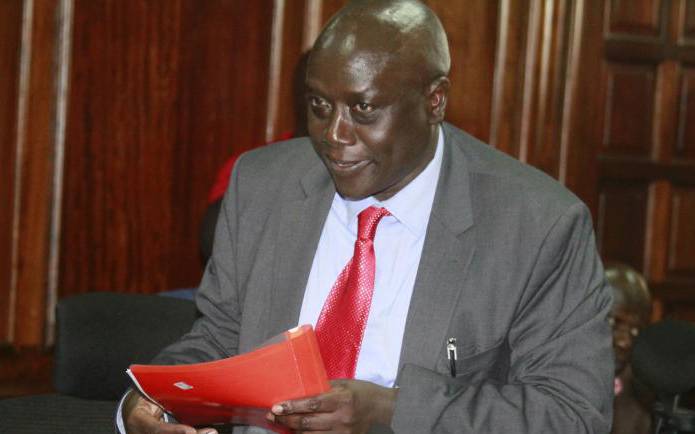×
The Standard e-Paper
Stay Informed, Even Offline

Pharmacy and Poisons Board CEO Fred Siyoi (right) when they appeared before the Senate Ad-Hoc Committee on the Medical Leasing Equipment at Parliament. [Boniface Okendo, Standard]
The leased medical equipment supplied to counties have not been inspected by a regulatory agency to ascertain they are not harmful to patients, a parliamentary committee has been told.